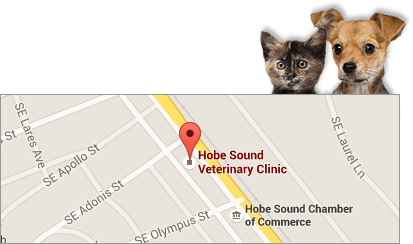The holiday season brings joy and festive cheer, but it’s important to remember that some holiday plants can pose significant hazards to our beloved pets. From the decorative fir tree to popular poinsettias, mistletoe, and even lilies, many plants commonly found during this time of year can cause a range of health issues for animals. This article, “Holiday Plant Hazards,” provides essential information to ensure your pets remain safe amidst the festivities. Learn how to protect your furry friends from these hidden dangers and enjoy a worry-free holiday season.
The holidays are full of food, fun, and family. They also present a few hazards for our animal companions! Read on to find out more about keeping your pet safe from plant hazards during the holiday season.
The Tree
If you’ve set up a holiday tree in your home this year, it’s important to be aware of a few potential dangers. Not only can the ornaments and lights adorning your tree prove hazardous if a pet tries to play with them, parts of the tree itself can cause harm. Fir trees produce an oil that can irritate a pet’s mouth or stomach, possibly leading to vomiting. Pine needles can irritate a pet’s stomach and even puncture the stomach lining. Keep a close eye on your animal friend when they’re playing near the tree.
Poinsettias
A pet would have to ingest quite a lot of a poinsettia plant to actually experience symptoms of poisoning; that doesn’t mean the plants are entirely safe, though. The poinsettia’s leaves contain a sap that can irritate a pet’s mouth, esophagus, and stomach—if enough is ingested, a pet is sure to experience excessive drooling or vomiting. Plus, a poinsettia plant may have been treated with a pesticide or fertilizer product, which you don’t want your four-legged friend ingesting.
Mistletoe and Holly
These popular plants aren’t safe for pets—both the plant material and berries of holly and mistletoe contain toxins that can cause serious symptoms, including stomach upset, abdominal pain, drooling, low blood pressure, diarrhea, and vomiting. Holly and mistletoe may even prove deadly if enough is ingested! Don’t allow your pet access to these plants under any circumstances.
Lilies
Did you know that various species of lilies are toxic to cats, and may harm dogs as well? Even small amounts of the lily plant can cause loss of appetite, lethargy, dehydration, vomiting, diarrhea, and—without prompt treatment—seizures or worse. Since lilies are common in bouquets and gift packages during the holidays, pay extra attention this time of year.
Autumn Decorations
You may still have plant decorations around from back in the fall season—while common autumn plants like pumpkins, gourds, and decorative corn aren’t necessarily toxic to animals, they can present a choking hazard or cause intestinal upset when swallowed. As we transition from one season to another, it’s important to consider various safety aspects for our pets. For more seasonal pet safety tips, you might find our article on Back To School Pet Safety helpful.
Holiday Plant Hazards in 2024: Identifying Symptoms and Protecting Your Pets
What are the specific symptoms of poisoning for different holiday plants?
During the holiday season, several common plants can pose poisoning risks to pets, each causing specific symptoms. Fir tree oils may irritate the mouth and stomach, leading to vomiting. Poinsettias can cause excessive drooling and vomiting due to their irritating sap. Holly and mistletoe contain toxins that result in stomach upset, abdominal pain, low blood pressure, diarrhea, and vomiting; large ingestions can be deadly. Lilies, particularly dangerous to cats, can cause loss of appetite, lethargy, dehydration, vomiting, diarrhea, and potentially seizures. Keeping these plants out of reach is essential for pet safety.
What should pet owners do if they suspect their pet has ingested a toxic plant?
If a pet owner suspects their pet has ingested a toxic plant, immediate action is crucial. Monitor the pet closely for symptoms such as vomiting, drooling, diarrhea, lethargy, and abdominal pain. Contact a veterinarian or an emergency animal clinic without delay. It’s important to identify the plant involved to inform the vet accurately. Avoid attempting to induce vomiting unless specifically instructed by a professional. Quick and appropriate veterinary intervention can mitigate the potential effects of plant toxins and ensure the pet’s safety and well-being.
Are there any risks associated with holiday foods for pets?
Yes, holiday foods can pose significant risks to pets. Many festive treats contain ingredients harmful to animals. Chocolate, common in holiday desserts, is toxic to dogs and cats, causing vomiting, diarrhea, and even seizures. Fatty foods can lead to pancreatitis, a serious condition. Additionally, foods with xylitol, a sugar substitute, can cause rapid insulin release in dogs, leading to hypoglycemia. Grapes and raisins, often found in holiday dishes, can cause kidney failure in dogs. Always keep holiday foods out of reach to ensure your pet’s safety during the festive season.
What precautions should be taken when hosting holiday parties with pets?
When hosting holiday parties with pets, ensure safety by keeping harmful plants like mistletoe, holly, lilies, and poinsettias out of reach, as they can cause severe health issues. Secure the holiday tree to prevent pets from knocking it over and avoid using tinsel or small ornaments that could be ingested. Be cautious with foods and drinks that might be accessible to pets, and remind guests not to feed them. Monitor pets closely to prevent stress and accidents, providing a quiet space where they can retreat if overwhelmed.
What are the risks associated with holiday trash for pets?
Holiday trash poses significant risks to pets. Wrapping paper, ribbons, and bows can cause choking or intestinal blockages if ingested. Leftover food scraps, especially chocolate, bones, and fatty foods, can lead to serious health issues like pancreatitis, poisoning, or gastrointestinal obstructions. Sharp objects, such as broken ornaments or packaging materials, can injure a pet’s mouth or digestive tract. Additionally, discarded batteries and small toy parts can be toxic or cause blockages. Always secure trash and monitor pets closely during holiday celebrations to prevent accidental ingestion and potential harm.
If you would like to know more about keeping your pet safe during the holidays, give us a call. We’re here to help! If you notice any signs of allergic reactions or skin irritations in your pet due to exposure to holiday plants, our Pet Allergies and Veterinary Dermatology service can provide specialized care.
Contact us, your local animal clinic in Hobe Sound, FL!




